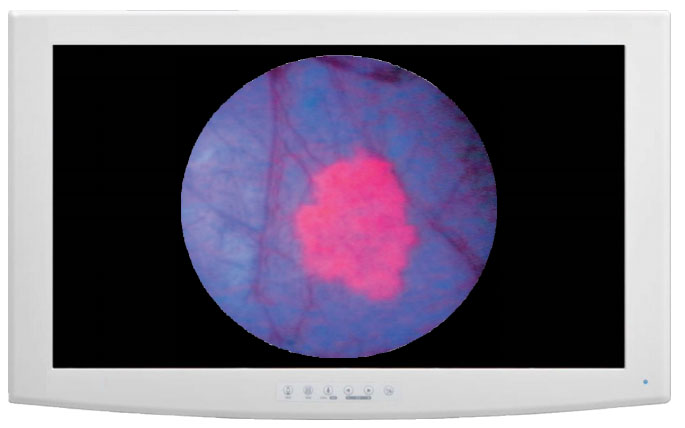"Clearly, the primary catalyst is always M&A activity," says Managing Director and Senior Analyst Jon LeCroy of MKM Partners in a recent interview. "I think how it performs going forward is mostly going to be based on whether we see continued M&A interest out of big pharma.” Well, let's see. In the last 10 months we saw Bristol-Myers Squibb Co. take Amylin Pharmaceuticals and also Inhibitex, GlaxoSmithKline Plc got Human Genome Sciences and AstraZeneca Plc bought Ardea Biosciences. There was also Gilead Sciences Inc. acquiring Pharmasset. If the recent past is any indication, then the sun should be shining on biotech.
LeCroy, a physician, loves to follow stocks based on his first-hand knowledge of disease management. He keeps up with trends by following a handful of big pharmas to give balance and perspective to his coverage. But clearly, the bread and butter small-cap growth space is where he can add the most value to institutional investors' needs. He starts with an old name nearly forgotten by me. Nektar Therapeutics (NKTR:NASDAQ) has had its share of ups and downs, but it now sports a market cap of more than $950 million, a level where a lot of mutual funds can play and bid up share prices. It's been a long time since I've heard an analyst say great things about Nektar, but the company has turned itself around since the dismal failure of its Exubera (recombinant human insulin with 1–5mm particles) inhalable product for diabetics, which was approved by the FDA and then dropped after 11 years of development and barely one year on the market by partner Pfizer Inc. Pfizer did try to make nice with a breakup gift of $135 million.
Today the company's platform revolves around pegylation technology, where a polyethylene glycol (PEG) molecule is linked to a drug which is already approved and which is perhaps approaching maturity. The idea is to preserve the best aspects of the product and to alter the way it affects a patient (pharmacodynamics) and the way a patient ultimately metabolizes and gets rid of it (pharmacokinetics). "It's really applicable to almost any drug that's ever been developed," says LeCroy. "And the company has now actually developed one of the deepest pipelines in biotech." Nektar's lead candidate is NKTR-118 (naloxegol), which is based on an original and very old product that would reverse the effect of deadly doses of drugs like morphine. It also reverses some other effects of narcotics, which slow down peristalsis and cause opioid-induced constipation (OIC). This is a major problem for cancer- and other disease-ridden patients who suffer chronic pain of acute proportion. "Right now, the opioid market is really the most prescribed set of drugs in pharma, with 250 million prescriptions written every year in the U.S," he says. "On top of that, about 40–50% of patients who are chronically taking opioids end up getting OIC." The product is in phase 3 studies now and is partnered with global big pharma AstraZeneca. "It's a billion-dollar opportunity for Nektar and AstraZeneca," says LeCroy.
He also likes Amarin, with its newly approved Vascepa (icosapent ethyl), which lowers triglycerides in patients trying to prevent or treat cardiovascular disease. "Right now," says LeCroy, "Most physicians really focus on lowering bad cholesterol or low-density lipoprotein (LDL). Vascepa targets another lipid, the triglycerides, which are actually a huge problem. High triglycerides affect about 44 million people in the U.S., so we're talking about a really significant market opportunity." Vascepa is the only FDA-approved product currently on the market competing with Lovaza (omega-3-acid ethyl esters), a fish oil-type of product. Lovaza combines two omega 3s, docosahexaenoic acid (DHA) and eicosapentaenoic acid (EPA). The problem with DHA is that it can raise LDL-C while it reduces triglycerides. That turns off a lot of physicians who are used to treating patients with stains to lower LDL-C in addition to total cholesterol. "We think that will be a huge advantage in the market," he says.
Another growth story in LeCroy's black bag is Acorda Therapeutics Inc. (ACOR:NASDAQ), again at that important market-cap level just above $900 million. The company's Ampyra (dalfampridine) is approved to help multiple sclerosis (MS) patients walk without foot dragging when muscles begin to weaken and lose coordination. "The product is already on track to sell over $250 million in its second full year on the market," says LeCroy. "One of the biggest advantages there is that the company can charge high prices for its drugs due to the severity of that disease because there is really no cure for it." A study reported on Aug. 13 said a 5mg dose of Ampyra was not effective, but a 10mg dose was, indeed, effective. Investors bit quickly and shares moved higher, which bodes well for growth and sales.
From his favorites so far it's clear that LeCroy likes companies involved in the management of underserved maladies. Neurocrine Biosciences Inc. (NBIX:NASDAQ) is another one of these companies with lead candidate elagolix in phase 3 studies for endometriosis. "[It's] an exciting opportunity because there are not really any good, chronic, oral medications for it," he says. "Most of the treatments right now have lots of side effects, and really the primary treatment is surgery. So it's a disease that clearly is an unmet medical need affecting almost 6 million women in the U.S."
To read the entire interview with Jon LeCroy, visit www.thelifesciencesreport.com.
DISCLOSURE:
George S. Mack personally and/or his family own shares of the following companies mentioned in this interview: None.
From time to time, Streetwise Reports LLC and its directors, officers, employees or members of their families, as well as persons interviewed for articles on the site, may have a long or short position in securities mentioned and may make purchases and/or sales of those securities in the open market or otherwise. Streetwise Reports does not accept stock in exchange for services or render general or specific investment advice and do not endorse or recommend the business, products, services or securities of any industry or company mentioned in this report. Streetwise Reports LLC does not guarantee the accuracy or thoroughness of the information reported.



























































